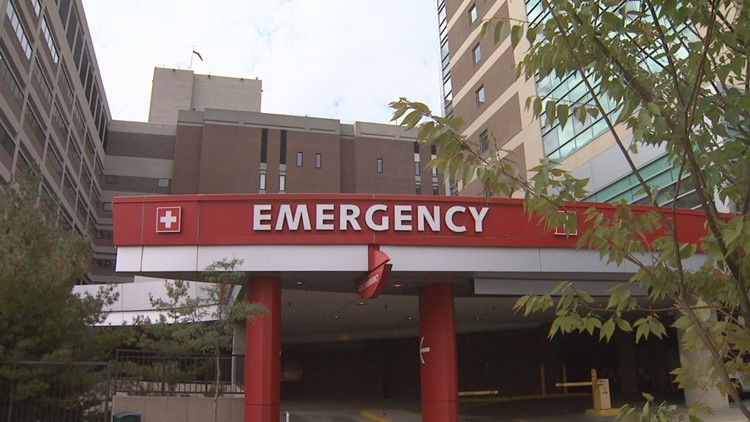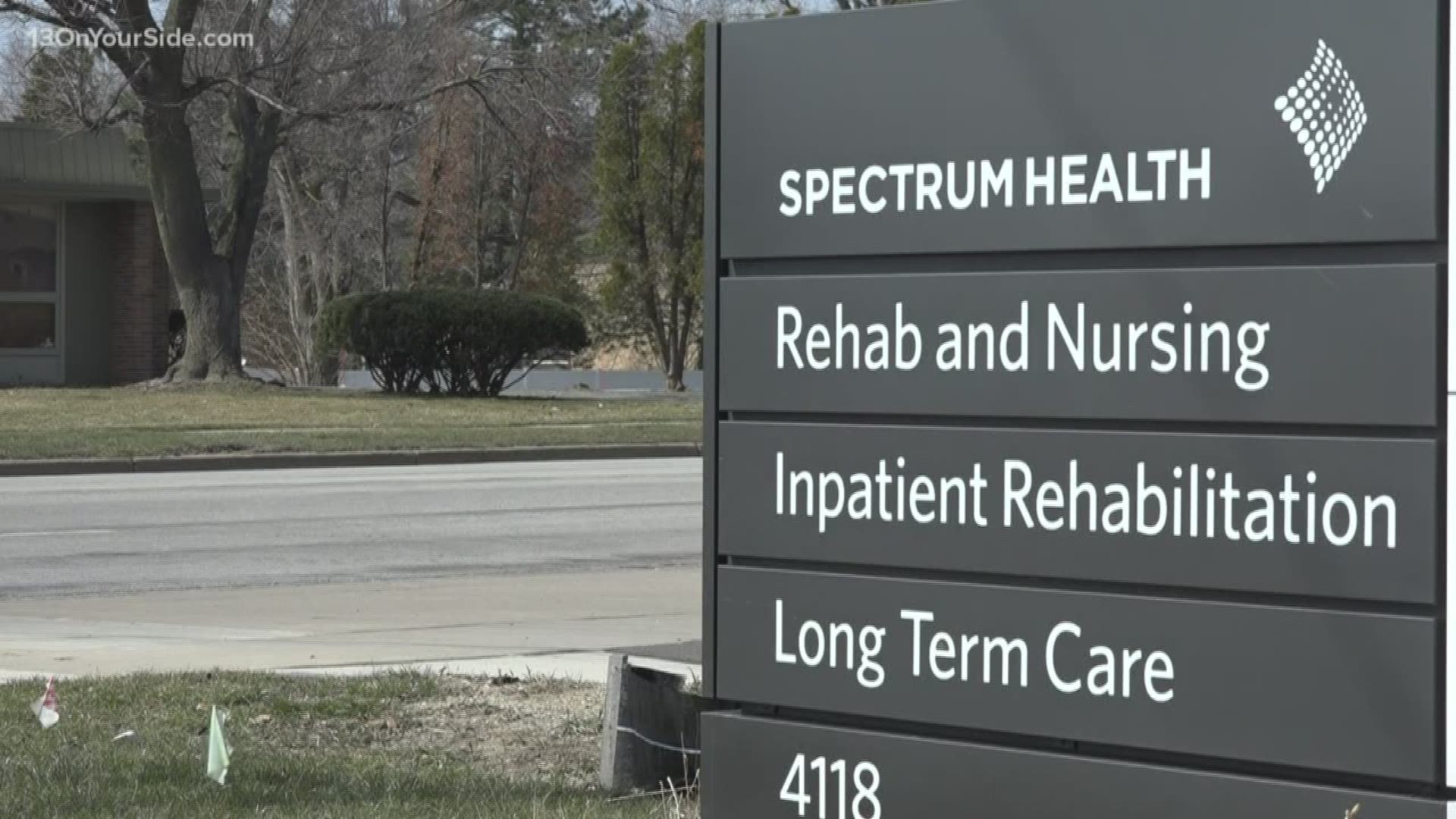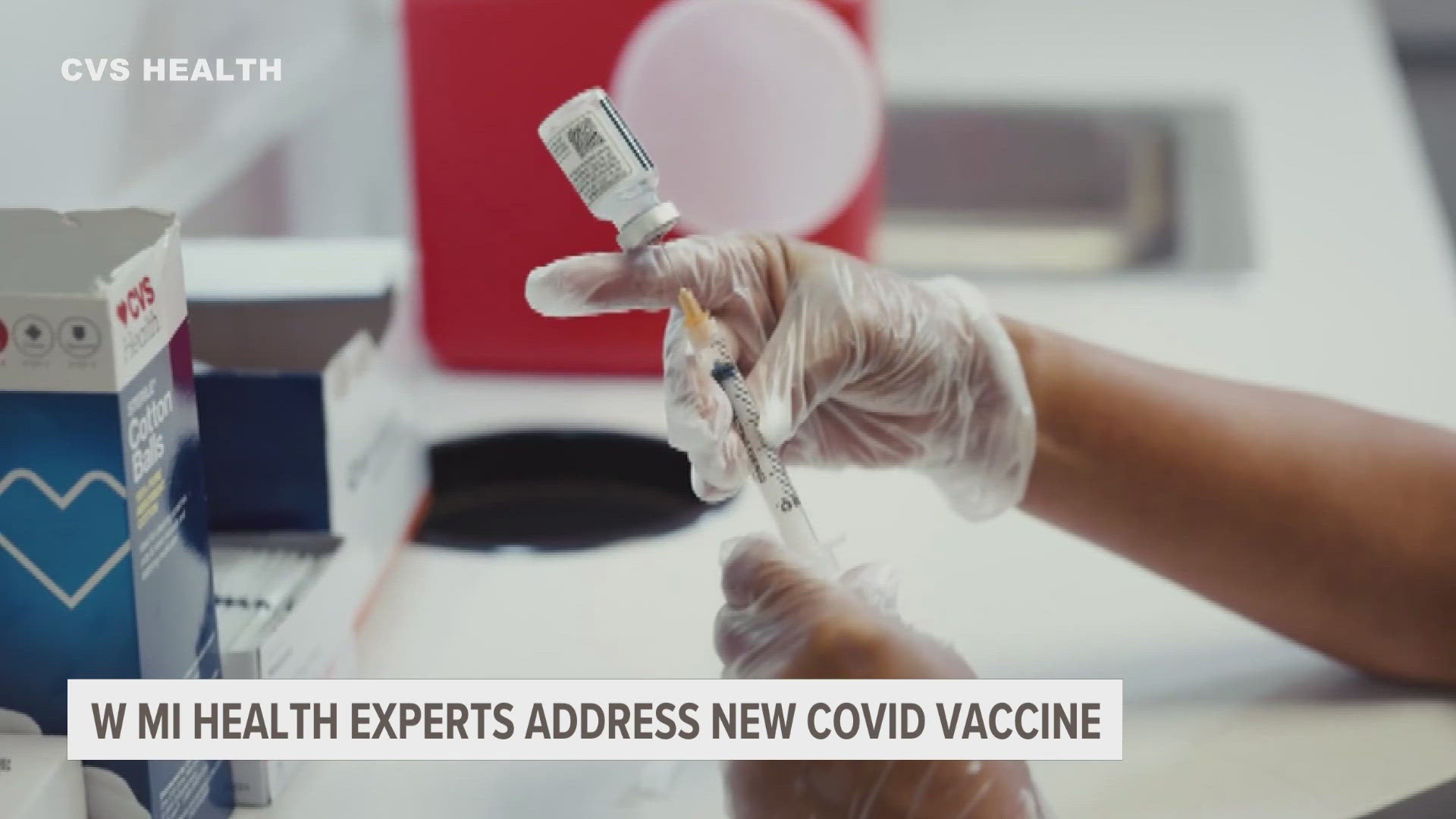GRAND RAPIDS, Mich. — Spectrum Health will be accepting COVID-19 patients from southeast Michigan, where the virus has overwhelmed hospitals and healthcare facilities.
The patients will be treated at Spectrum Health Butterworth and Blodgett, both in Grand Rapids.
Last week, Michigan's Chief Medical Executive Dr. Joneigh Khaldun said the state was asking hospitals to open up 10% of their bed capacity and serve as relief hospital to patients from southeast Michigan.
"We support the State of Michigan’s efforts to plan for expanded hospital capacity," said a statement from Spectrum Health. "At this time, we have capacity and have developed a compassionate patient acceptance plan where we will accept a limited number of medically-appropriate COVID-19 patients from southeast Michigan."
As of Thursday, about 80% of all COVID-19 cases in the state have been in the three-county region of metro Detroit: Wayne, Oakland and Macomb counties. In West Michigan, Kent County has the highest total with 125 positive cases.
Spectrum Health said they anticipate the surge in southeast Michigan will be declining as they increase their patient load. "(We) may need hospitals there to help us in a similar way," the statement said.
The transfer of patients will be "carefully coordinated and highly collaborative with other health systems in the state," Spectrum Health said.
Spectrum Health has 14 hospitals across West Michigan with 29 patients who have tested positive for COVID-19, and 40 who are hospitalized and their results are pending.
"We're all in this together," Spectrum Health said.
Also in West Michigan, Mary Free Bed said it would be accepting rehabilitation patients from southeast Michigan.
STATE RECOMMENDATIONS FOR COVID-19
Patients with confirmed infection have reportedly had mild to severe respiratory illness with symptoms of:
- Fever
- Cough
- Shortness of breath
The best prevention for viruses, such as influenza, the common cold or COVID-19 is to:
- If you think you have been exposed to COVID-19, call your health care provider. If you do not have a health care provider, call the nearest hospital.
- Wash your hands often with soap and warm water for 20 seconds. If not available, use hand sanitizer.
- Avoid touching your eyes, nose, or mouth with unwashed hands.
- Cover your mouth and nose with a tissue or upper sleeve when coughing or sneezing.
- Avoid contact with people who are sick.
- If you are sick, stay home, and avoid contact with others.
- Stay at least 6 feet away from others when in a public setting.
More stories on 13 ON YOUR SIDE:
RELATED VIDEO:
►Make it easy to keep up to date with more stories like this. Download the 13 ON YOUR SIDE app now.
Have a news tip? Email news@13onyourside.com, visit our Facebook page or Twitter. Subscribe to our YouTube channel.




